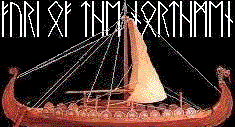For Caesar IV see
here.
You might also want to consider CivCity: Rome, recently out and with a thread just started
here. There are also comments on it in the Caesar IV thread.
CotN I liked. It is very different to the usual city builders, and I enjoyed it for that. Not spectacular, not world changing, but nice. It's ... relaxing, I found. Something to load up, tinker with and watch, tweaking and expanding your work for the pleasure of it. It's not perfect. There aren't a huge number of maps included, but more can be downloaded. There were times when I felt it was too relaxed - sometimes a bit of stress can be good, and there weren't any missions which made me feel I had to work hard to win.
The main reason people don't get on with it from what I've seen is that they think it is about managing a city via buildings, not people. It's the first ancient city builder to use a pull economy, not a push one; a big improvement IMO. Basically, that means your citizens will go and get what they need instead of waiting for someone to bring it to them, so no more cities falling to bits because someone is slow in their rounds. However, if they have to go too far or don’t have time due to work then they simply won’t get what they need. So it’s a balance, a new challenge when laying out your city.
The game makes a nice enough abstract model of life; I especially liked the way the sons of richer working class families would go to school, slowly get an education, and then grow up to take on jobs in temples, the civil services. Then they move out to posher houses, marry, and their own children carry on the new family tradition. You can watch families through generations, following their fortunes. Richer families will even buy tombs, if you build some. Food comes at the harvests, and has to last out the year; it's used as currency, with the shop keeper, servant and entertainer families getting food only through payment for their services, and the nobility collecting it from your city bakeries as pay.
There's a demo. Try it. It's not a very good demo though; it bombards you with not so useful tips, and is quite limited compared to the full game. The full game should be cheap by now; I brought my copy about a year ago now, and it had been out for a bit then.




 Reply With Quote
Reply With Quote








Bookmarks